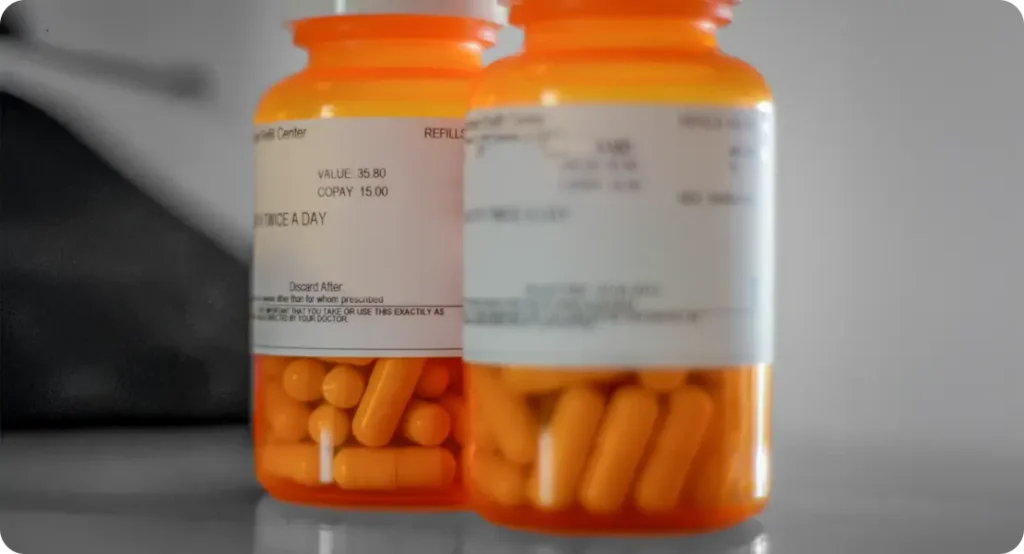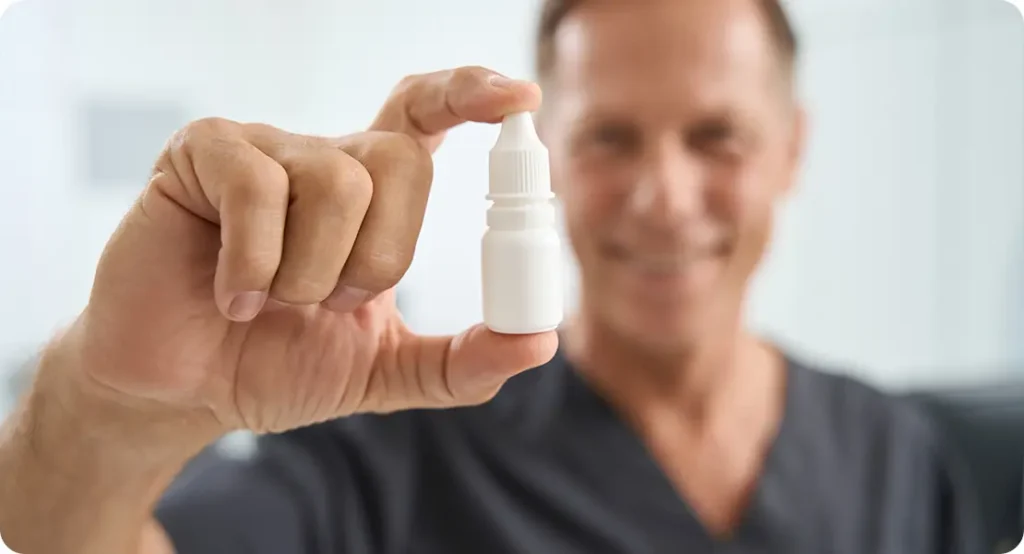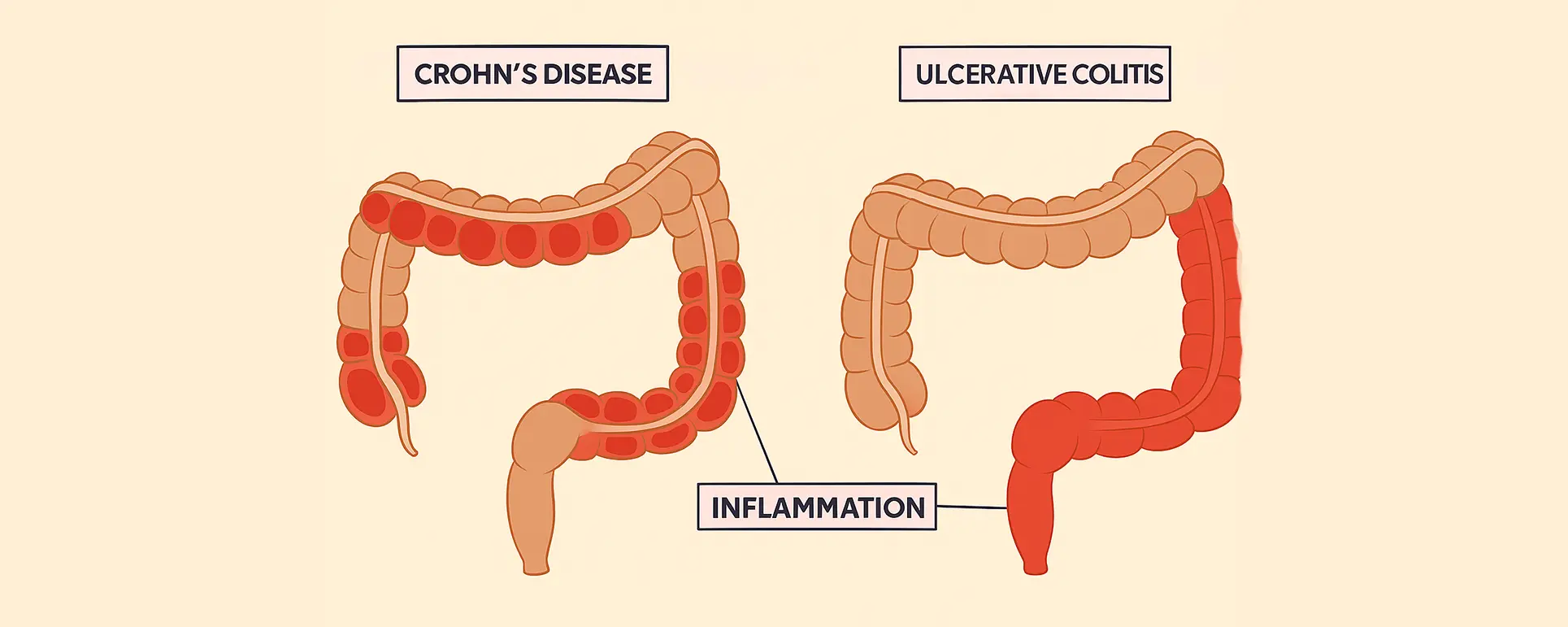If you’re living with Crohn’s disease and facing cataract surgery, you might be wondering how your condition—and the medications you take—might affect the procedure. It’s a valid concern. Cataract surgery is one of the most common and successful operations in the world, but when you add a chronic inflammatory condition like Crohn’s into the mix, things can get a little more complicated.
This guide is here to walk you through what you need to know. Whether you’ve been on long-term corticosteroids, are taking immunosuppressants, or simply want to make sure your body is in the best possible state for healing, there are practical ways to plan ahead and reduce your risk of complications. Let’s explore how Crohn’s disease can impact cataract surgery and what you can do to prepare and recover with confidence.
Understanding Crohn’s Disease and Its Relationship with Eye Health
Crohn’s disease is a type of inflammatory bowel disease (IBD) that affects the digestive tract, but its impact goes far beyond the gut. In fact, it’s considered a systemic condition—meaning it can affect many parts of the body, including your eyes.
Eye problems are not uncommon in Crohn’s. Some people develop inflammatory eye conditions like uveitis or episcleritis. Others may develop cataracts due to long-term steroid use. Understanding this connection helps you and your surgical team make more informed decisions before any eye procedure, including cataract surgery.
Even if your Crohn’s is well-controlled, the inflammation or medications used to manage it can have lingering effects on your eyes and your body’s ability to heal. That’s why ophthalmologists often work closely with your gastroenterologist before and after surgery.
How Steroid Use in Crohn’s Patients Can Lead to Cataracts

One of the most common reasons people with Crohn’s disease develop cataracts earlier than expected is prolonged use of corticosteroids like prednisolone. These powerful anti-inflammatory drugs are essential in managing Crohn’s flares, but they come with a range of side effects—including changes in the lens of the eye.
Steroid-induced cataracts typically take the form of posterior subcapsular cataracts. These grow on the back surface of the lens and tend to affect your near vision first. They can be particularly troublesome because they cause more visual disturbance in bright light and may progress more rapidly than age-related cataracts.
If you’ve been on steroids—even intermittently—it’s worth flagging this during your pre-surgery consultation. Your ophthalmologist may adjust the surgical technique slightly and will keep a close watch for other steroid-related risks, such as delayed healing or increased intraocular pressure.
Immunosuppressive Medication and Healing After Surgery
Beyond steroids, many people with Crohn’s are on immunosuppressive medications like azathioprine, methotrexate, or biologics (e.g. infliximab, adalimumab). While these help control gut inflammation, they can also reduce your body’s ability to fight off infections or mount a strong healing response after surgery.
During cataract surgery, there’s always a small risk of infection or inflammation. For people with a suppressed immune system, that risk—while still low—can be slightly higher. Your surgeon may recommend extra precautions. This could include using antibiotics before or after surgery, adjusting steroid eye drops, or delaying surgery if your immune status is unstable.
Don’t be alarmed, though. Most people on immunosuppressants still have successful cataract operations. The key is making sure your immune system isn’t overly compromised at the time of surgery and that your Crohn’s is in a relatively stable phase.
The Importance of Timing: When Should You Have Surgery?

Timing is critical when you have Crohn’s. If you’re in the middle of a flare, it’s often best to delay cataract surgery until things settle. Surgery is a form of stress on the body, and your healing mechanisms are less efficient when your gut is inflamed or when you’re losing nutrients.
Your ophthalmologist may collaborate with your gastroenterologist to identify a “safe window” for surgery. Ideally, this would be a period when your disease is quiet, your blood tests look good, and you’re not on high-dose steroids.
In some cases, you might need a bit of preparation beforehand—such as adjusting medication doses, improving nutritional status, or pausing certain drugs briefly. These decisions are individualised and depend on your overall health and the urgency of the cataract surgery.
Nutritional Status: Why It Matters More Than You Might Think
Malnutrition is an underappreciated factor in surgical recovery, and it’s a real concern for many people with Crohn’s. If your gut isn’t absorbing nutrients properly—or if you’ve lost weight recently—your body may struggle to heal after surgery.
Nutrients like vitamin A, zinc, and protein are particularly important for wound healing and immune function. Before surgery, it’s a good idea to ask your GP or IBD team to check your nutritional status. In some cases, you might benefit from supplements or dietary adjustments in the weeks leading up to your operation.
Even mild deficiencies can impact recovery—so it’s better to catch these early and address them before the day of surgery.
Anaesthesia Considerations in Crohn’s Disease
Cataract surgery is usually done under local anaesthesia using eye drops and a mild sedative if needed. However, in patients with Crohn’s, even the anaesthesia process might need a bit more thought.
If you’ve had previous bowel surgeries, adhesions, or fistulae, these may influence your overall surgical risk—even if the procedure is on your eye. Similarly, any history of anaesthetic complications or reactions to sedatives should be discussed upfront.
In rare cases, general anaesthesia may be considered—for example, in patients with severe anxiety, movement disorders, or communication difficulties. If that’s the case, your anaesthetist will want a full overview of your Crohn’s history, current medications, and any extra-intestinal complications.
Eye Drops After Surgery: Can They Affect Your Gut?

After cataract surgery, you’ll be prescribed eye drops—typically a combination of antibiotic and steroid drops. While these are applied topically, a small amount can enter your bloodstream through the tear duct.
For most people, this tiny absorption is harmless. But if you’re sensitive to steroids or have previously experienced flares triggered by steroid medication, it’s worth asking whether a lower-dose or shorter course of drops could be used.
There are also preservative-free formulations available if you have a history of eye irritation or allergies. Your ophthalmologist can personalise your drop regimen to balance eye healing with minimal systemic impact.
Will Cataract Surgery Affect Your Crohn’s Disease Directly?
Generally, no. Cataract surgery is highly localised to the eye and doesn’t directly impact your digestive tract. However, the stress of surgery, the change in medications, or even the disruption to your daily routine can sometimes trigger a flare.
To reduce this risk, make sure your IBD team knows you’re having eye surgery. They may want to adjust your treatment plan slightly or monitor you more closely during the postoperative period. Keep taking your regular Crohn’s medications unless advised otherwise, and watch for any early signs of flare-up in the days or weeks after the operation.
If you do notice a change in your bowel symptoms, don’t ignore it. Prompt treatment can prevent a minor flare from becoming more serious.
Practical Tips to Help You Prepare for Surgery
Here are some things you can do to make the whole process smoother:
- Coordinate your care: Make sure your ophthalmologist, GP, and gastroenterologist are all aware of the surgery. A short summary letter or clinic note can help them stay aligned.
- Sort out your meds: Confirm which medications you should continue or stop before the procedure. Don’t assume—it’s always best to check.
- Boost your nutrition: If you’ve had appetite loss, weight loss, or gut malabsorption recently, ask for a nutritional review.
- Plan your recovery: Make sure you have someone to help you at home for the first few days, especially if fatigue or gut symptoms are unpredictable.
- Watch for infection: Even with eye drops, if you develop redness, worsening pain, or discharge from the eye, contact your surgeon right away.
Long-Term Vision Outcomes in Crohn’s Patients
The good news? Most people with Crohn’s disease who undergo cataract surgery enjoy excellent results. The surgery itself is safe, the visual improvement is often dramatic, and any extra risks can usually be managed with careful planning.
That said, if your eye has been affected by other IBD-related issues—like uveitis, glaucoma, or retinal inflammation—then your visual outcome might be slightly less predictable. That’s not to say you won’t benefit greatly from surgery—it just means your expectations should be tailored to your unique situation.
Ask your surgeon for an honest assessment of what to expect. In most cases, cataract surgery remains one of the most rewarding interventions in ophthalmology—even if Crohn’s adds a few extra layers of complexity.
FAQs
- Can Crohn’s disease directly cause cataracts?
Crohn’s disease itself doesn’t directly cause cataracts, but many people with Crohn’s develop them as a side effect of long-term corticosteroid use, which is commonly prescribed to manage inflammation during flares. These steroid-induced cataracts tend to form more quickly and can affect vision at a younger age than typical age-related cataracts. The link is therefore indirect but significant, making regular eye checks important if you’ve been on steroids for an extended period. - Is it safe to have cataract surgery during a Crohn’s flare-up?
Having cataract surgery while experiencing an active Crohn’s flare is generally not recommended, as the inflammation can weaken your body’s ability to heal and increase the risk of complications like delayed recovery or infection. Most surgeons prefer to schedule the procedure during a stable or remission phase of your condition, which allows for better control of your immune response and reduces the likelihood of postoperative issues. Planning surgery during a quiet period gives you the best chance of a smooth outcome. - Do biologics increase surgical risk for cataract procedures?
Biologic medications used in Crohn’s, such as infliximab or adalimumab, do slightly suppress the immune system, which may raise your risk of postoperative infection or slow down healing slightly. However, cataract surgery is a clean and minimally invasive procedure, and with proper precautions—including antibiotic drops and good hygiene—the risk remains very low. Your ophthalmologist will usually continue your biologics unless there’s a compelling reason to pause them briefly, and coordination with your IBD team ensures safe timing. - Can cataract surgery worsen Crohn’s symptoms?
Cataract surgery itself does not typically worsen Crohn’s disease, but the stress associated with surgery—such as fasting, disrupted medication routines, or general anxiety—can sometimes trigger a mild flare. That’s why it’s helpful to keep your gastroenterologist informed before and after surgery so they can watch for early signs of disease activity. Most people tolerate the procedure well, and with a little extra planning, the chances of surgery affecting your gut symptoms are minimal. - Will I need to stop my Crohn’s medication before surgery?
In most cases, you won’t need to stop your Crohn’s medication before cataract surgery, but it depends on the drug and your overall immune status. Immunosuppressants and biologics are usually continued, especially if stopping them risks triggering a flare, but some clinicians may suggest a brief pause or adjustment depending on timing and healing concerns. Your ophthalmologist and gastroenterologist will usually coordinate to find the safest balance for your treatment plan. - Are steroid eye drops safe if I’m already steroid-sensitive?
Steroid eye drops are routinely used after cataract surgery to reduce inflammation, and even for patients who are sensitive to systemic steroids, they are generally safe because the amount absorbed into the bloodstream is minimal. However, if you’ve previously had flares or complications linked to steroids, your surgeon may choose a milder formulation, a shorter course, or even a steroid-sparing option to keep your recovery smooth while reducing any systemic impact. - How long is the recovery for cataract surgery in someone with Crohn’s?
Most people with Crohn’s disease recover from cataract surgery within the usual timeframe of a few days to a couple of weeks, but if you have nutritional deficiencies, are on immunosuppressants, or have ongoing inflammation, healing may take a little longer. You might notice that your vision improves quite quickly, but full healing of the eye surface can be slightly delayed if your body’s ability to repair tissue is compromised. Regular follow-up helps track your progress and adjust care if needed. - What should I tell my surgeon before cataract surgery?
It’s important to share a full picture of your Crohn’s history with your eye surgeon, including your current medications, any recent flares, past surgeries, and whether you’ve had any reactions to anaesthesia. You should also mention if you’ve experienced nutritional issues or if you’re currently on high-dose steroids or biologics. This information helps your surgeon tailor the procedure and aftercare to minimise risks and make your experience as safe and comfortable as possible. - Is there a higher risk of infection after cataract surgery with Crohn’s?
There can be a slightly increased risk of infection if you’re on immunosuppressants or biologics for Crohn’s disease, as your body’s natural defences may be reduced, but cataract surgery is performed in a sterile environment with antibiotic drops provided as standard. As long as your medication is well-managed and your immune status is reasonably stable, the risk remains very low, and surgeons take additional precautions if you’re in a higher-risk group. - Can nutritional deficiencies affect my vision or healing after surgery?
Yes, nutritional deficiencies—especially of vitamins A and D, zinc, or protein—can slow wound healing and increase the risk of dry eyes or surface irritation after cataract surgery, particularly in people with Crohn’s who may have malabsorption or recent weight loss. If you’ve had digestive issues recently, it’s worth having your levels checked before surgery so that any deficiencies can be corrected. Supporting your body nutritionally will make your recovery quicker and more comfortable.
Final Thoughts: You’re Not Alone in This
It’s completely normal to feel a bit anxious about having eye surgery, especially when you’re already managing a complex condition like Crohn’s disease. But with the right support and planning, you can absolutely achieve a safe and successful outcome. At London Cataract Centre, we’re experienced in working with patients who have additional medical needs, including those on long-term steroids or immunosuppressants. We take the time to understand your full health picture and tailor your cataract surgery accordingly—because your recovery and long-term vision matter just as much as the procedure itself.
So if you’re unsure about timing, medications, or what to expect during recovery, don’t hesitate to reach out. With collaborative care, careful preparation, and a personalised approach, you can move forward with clarity and confidence.
References
- Tripathi, R.C., Malka, N., Kipp, M.A., Hanauer, S.B. and Tripathi, B.J., 1995. Posterior subcapsular cataracts and raised intraocular pressure caused by prolonged oral corticosteroid therapy in adult patients with inflammatory bowel disease. In: I. Weisse, O. Hockwin, K. Green and R.C. Tripathi, eds. Ocular Toxicology. Boston, MA: Springer, pp.241–248. Available at: https://link.springer.com/chapter/10.1007/978-1-4615-1887-7_27 [Accessed 1 Jul. 2025].
- Huang, X., Zhang, Y., Shi, L., Wu, X. and Ding, X., 2020. Biologics and surgical outcomes in Crohn’s disease: is there a direct link? Journal of Crohn’s and Colitis, 14(8), pp.1021–1031. Available at: https://www.ncbi.nlm.nih.gov/pmc/articles/PMC7366403/ [Accessed 1 Jul. 2025].
- Healthline, 2018. Steroids and vision: side effects, symptoms, and more. Healthline, [online] 6 Jun. Available at: https://www.healthline.com/health/steroids-and-vision [Accessed 1 Jul. 2025].
- European Crohn’s and Colitis Organisation (ECCO), 2023. ECCO Guidelines on Extraintestinal Manifestations in Inflammatory Bowel Disease. Journal of Crohn’s and Colitis, 18(1), pp.1–34. Available at: https://academic.oup.com/ecco-jcc/article/18/1/1/7205776 [Accessed 1 Jul. 2025].
Let me know if you’d like a few more references added or formatted into a bibliography section.

